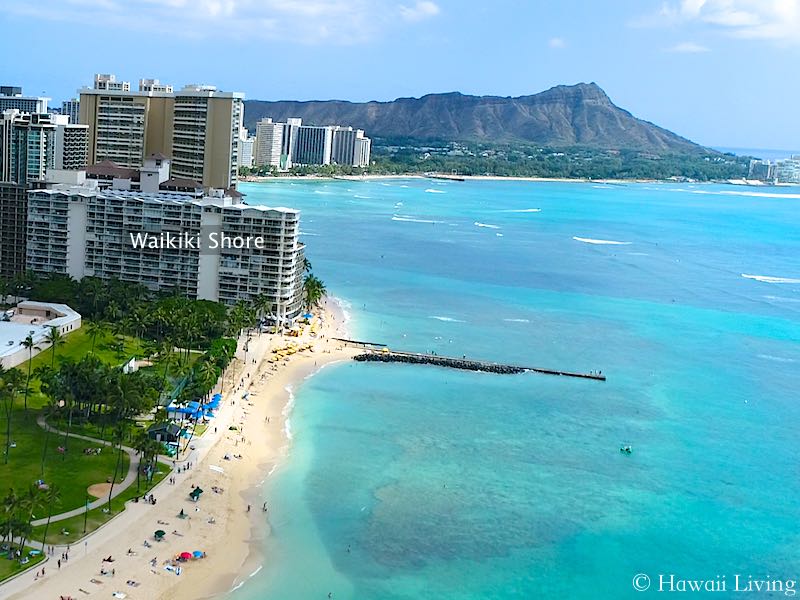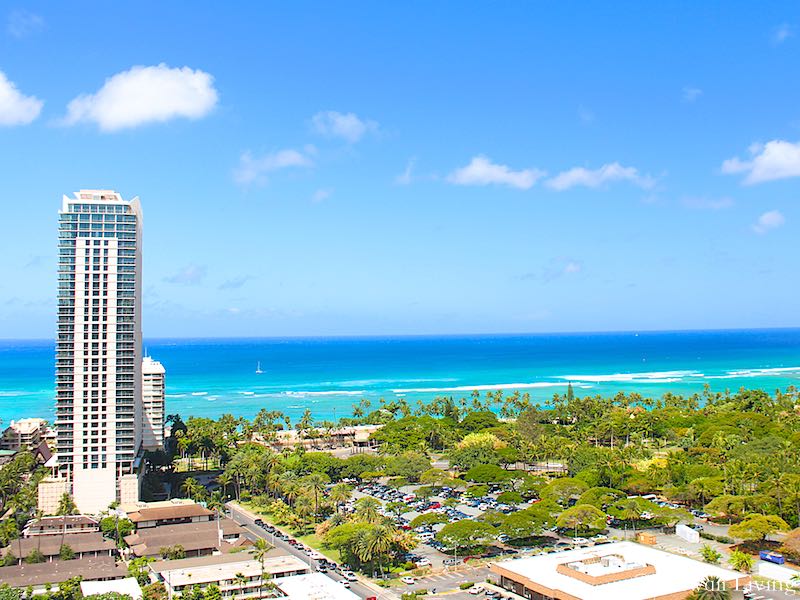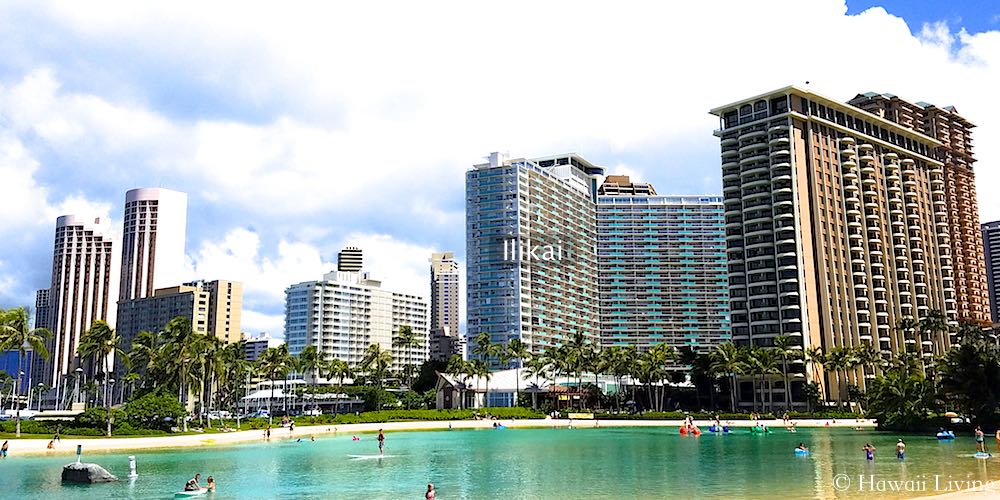“I’m interested in purchasing a condo I can use while I am on vacation in Hawaii and the rest of the time I want to rent it out to other vacationers so I can generate some income.”
This is the most common request I receive from prospects interested in purchasing a condo in Honolulu.
The dream of owning a condo in Honolulu one can use while vacationing and the rest of the time rent out to other vacationers and generate a nice cash flow is a great idea, but the reality of Honolulu’s short-term vacation rental market isn’t always aligned with expectations and assumptions of many interested buyers.
PS! In the following, I will refer to short-term vacation rental condos as condo hotels.

Good to Know About Honolulu’s Condo Hotels
1) Honolulu only has about thirty condo hotels – see the complete list here. All other condos in Honolulu require a minimum of 30-day rental periods and sometimes even longer, depending on a condo’s house rules.
2) Most condo hotels in Honolulu are older and there are only two newer ones – Ritz-Carlton Waikiki and Trump Tower Waikiki.
3) Most condo hotel units are either studio or 1 bedroom format. Most 2-bedroom units are located in Ritz-Carlton Waikiki, Trump Tower Waikiki, and Ilikai, with just a few 2-bedroom units in some other condo hotels.
4) Less than 10% of condo hotel units are sold with a parking stall. However, most condo hotels have a parking structure, allowing you to rent a stall while staying at your unit (Ritz-Carlton Waikiki & Trump Tower Waikiki offer complimentary valet parking when an owner is staying at his / her unit).
5) Most condo hotels have community laundry – no washer & dryer allowed in units. There are a few units here and there with washer & dryer in units, though only Ritz-Carlton Waikiki and Trump Tower Waikiki have washer & dryer in all units, except the studios at Trump Tower Waikiki.
6) Almost all condo hotels are located in Waikiki. None of the new condos in Kakaako or existing newer Kakaako condos allow for short-term vacation rentals.
7) 1.5% to 5% cap rate seems to be the most common range when owners use either a hotel operator or 3rd party rental agency to manage their unit (based on several financial statements I have reviewed during the year 2017). A smaller number of properties are in the -1% to 1.5% cap rate range (appears to be the case for several units in luxury Ritz-Carlton Waikiki & Trump Tower Waikiki).
Note: Owners who manage rentals on their own – via VRBO or Airbnb – sometimes generate far superior returns, but keep in mind; running a vacation rental condo is like a job in itself!
8) If you are planning to use financing on a condo hotel purchase, please keep in mind banks typically require a minimum of 30% cash down payment, and as the loan amount increases, beyond certain thresholds, the cash down required increases. Here is an example of requirements – as of writing – from a major bank in Hawaii:
A) Loan amount up to $636,000 = 30% cash down (minimum),
B) Loan amount up to $850,000 = 35% cash down (minimum),
C) Loan amount up to $1,000,000 = 40% cash down (minimum),
D) Loan amount up to $1,500,000 = 65% cash down (minimum).
9) Loans on condo hotels are so called portfolio loans – loans lenders keep on their books, as opposed to conventional loans, which lenders will sell on the secondary markets to large mortgage investors, such as Fannie Mae and Freddie Mac. Because portfolio loans stay on the lender’s books, rates tend to be higher than conventional loans (as of writing, just a bit higher). Loans for second homes tend to come with lower interest rates than investor loans (investor loans are loans for buyers who intend to rent out their property). If a purchase contract refers to rental terms (e.g. buyer takes over a Seller’s existing rental bookings) then the buyer will apply for an investor loan. However, if the unit is vacant – upon taking ownership – and you intend to use as your second home or leave vacant, then you can apply for a second home loan.
10) Property taxes are higher for condo hotels than regular condos. Learn all about Honolulu property taxes here.
Note: If you do not run short-term vacation rentals (maybe your second home or you have a long-term tenant) you can dedicate your condo hotel unit for residential use and if approved you will only pay the residential property tax rates (please review this article – it outlines possible penalties if you re-classify a condo hotel unit to residential).
11) The more attractive a building, its location, and ocean views the more of a premium you typically end up paying, which is likely to reduce the cap rate. For instance, In Ritz-Carlton Waikiki you get to enjoy a 5-star luxury hotel, in Waikiki Shore you get to enjoy the only condo located right on Waikiki Beach and in Waikiki Beach Tower you get to enjoy a condo with outstanding balconies, incredible ocean views (especially high floor units) in a prime location along Kalakaua Ave – these high demand factors drive prices to levels where cash flows tend to be less attractive. You pay, what I like to refer to as, a ‘lifestyle premium’.
12) In most condo hotels, the hotel operator with a front desk in the building, typically manages most of the rentals, though most condo hotels allow you to freely select a rental agency of your choice.
13) In Trump Tower Waikiki and Ritz-Carlton Waikiki you are limited to use the hotel operator to manage your short-term vacation rentals or 1 to 2 approved property management vendors (vast majority of owners decide to use the hotel operator).
14) From a cap rate perspective it may sometimes make sense using a hotel operator – Mantra appears to have done a good job for many owners at Ala Moana Hotel Condo – and other times it may make sense using a 3rd party vendor – WaikikiBeachRentals appears to have done a good job for many owners at Ilikai.
15) Just because a 3rd party rental agency charges less than a hotel operator, that doesn’t necessarily equate to a better deal for you (higher income). The hotel operator may have a superior marketing program enabling them to charge higher nightly rates and maintain a higher occupancy rate. Review financial statements – they give you an idea of reality.

I hope this overview has been helpful. Feel free to leave comments & questions below.
